

If you’re searching for Jeffersontown, Kentucky, drug and alcohol rehab or comparing drug and alcohol rehab facilities near Jeffersontown, you’re likely balancing convenience with quality. Louisville Addiction Center—located in Louisville—supports Jeffersontown residents with outpatient levels of care: Partial Hospitalization (PHP), Intensive Outpatient (IOP), and Outpatient (OP).
Care is grounded in evidence-based therapies with dual diagnosis support for co-occurring mental health needs. Admissions is straightforward (assessment → plan → step-down), and when scheduling permits, we can help you begin the same week so you don’t lose momentum.
“Inpatient” means 24/7 residential care with round-the-clock monitoring and medical oversight. “Outpatient” means you live at home and attend structured treatment—ideal when you have stable housing, medical safety, transportation, and benefit from daily or weekly clinical support.
If you’re exploring rehab options near Jeffersontown, Louisville Addiction Center offers nearby outpatient care that fits into your life so you can get help while staying on track with work, school, and family.
After a thorough intake, your team recommends the right level—PHP for robust daytime structure, IOP for several weekly therapy blocks, or OP for maintenance and relapse prevention—so treatment fits your life and builds durable skills.
Many people start by looking for alcohol detox centers in Jeffersontown. Detox is typically a short, medically supervised step that manages withdrawal and prepares you for ongoing care.
Louisville Addiction Center provides outpatient treatment—PHP, IOP, and OP—after detox or when detox isn’t required, focusing on therapy, skills practice, relapse-prevention planning, and long-term stabilization with a coordinated step-down path.

Detox is the medically managed clearing of drugs or alcohol from your body; rehab is the longer-term counseling and skill-building that follows. During detox, the brain and nervous system rebound after months or years of chemical suppression, and that rebound can be dangerous.

When cravings keep overruling your best intentions, sheer willpower rarely carries you to the finish line. That’s why drug treatment in Louisville at Louisville Addiction Center pairs accredited clinicians with evidence-based therapies, turning the turmoil of active use into a clear, step-by-step path to lasting sobriety.

PHP near Jeffersontown runs about five to six hours a day, five days a week, with you home at night. Each day blends individual therapy, process groups, psychoeducation, and skills practice; psychiatric support is available when clinically indicated.
You’ll set measurable weekly goals and rehearse relapse-prevention strategies in real-world terms—sleep, stress, cravings, boundaries.
This level is a strong bridge after higher-acuity care or when you need robust daytime structure to stabilize without stepping away from family, school, or work. Frequent check-ins help your team spot what’s working, adjust quickly, and keep momentum steady across the week.

IOP meets in three-hour blocks, three to five days per week. Sessions combine group work, targeted individual counseling, and practical skills such as craving management, communication, and emotion regulation.
Brief progress reviews track sleep, mood, triggers, and milestones; medication management is available when appropriate.
Because meetings are offered at convenient times, IOP fits around work or school while delivering consistent structure—an ideal choice if you’re evaluating a rehab clinic in the Jeffersontown area. This is an area solution that keeps you engaged in daily life and connected to care.

OP provides one to three hours per week focused on relapse-prevention, coping skills, and accountability. It’s a smooth step-down from PHP or IOP, helping you stress-test routines in real life while staying connected to the same care team. Sessions reinforce trigger planning, peer support, and aftercare so gains hold as responsibilities grow.

At Louisville Addiction Center, we offer rehab for veterans in Louisville, Kentucky. As a veterans addiction treatment center, we provide TRICARE addiction treatment for veterans. Veterans have unique needs when it comes to substance abuse and mental health disorders. We understand that and offer specialized treatment.
Medication-Assisted Treatment (MAT) pairs FDA-approved medications with counseling, skills practice, and regular check-ins, but never medication alone. At Louisville Addiction Center, MAT is integrated across outpatient levels of care (PHP, IOP, OP) so support matches your stage of recovery and tapers as stability grows.
When clinically appropriate, medications can reduce cravings, ease withdrawal symptoms, and help you stay engaged in therapy. Your prescribing team monitors response, side effects, and adherence, and coordinates closely with your therapists to adjust the plan as you step down.
MAT is available for more than opioids: we also treat alcohol use disorder and provide clinician-guided medication support for other substance concerns.
The goal is practical—make day-to-day recovery doable, strengthen relapse-prevention skills, and keep momentum going while you maintain work, school, and family routines.
For opioid use disorder, options like buprenorphine or naltrexone (when appropriate) can limit cravings and withdrawal so you can fully participate in therapy. Your team builds a safety plan, reviews goals each week, and coordinates care across PHP, IOP, and OP to support consistent progress and measured step-downs without losing clinical support.
For alcohol use disorder, naltrexone or acamprosate may be used and paired with counseling, skills training, and relapse-prevention planning. The focus is on reducing urges, increasing therapy participation, and building routines (sleep, stress, social support) that reinforce sobriety as you transition from PHP to IOP to OP.
When benzodiazepines or other substances are involved, clinicians use careful, individualized medication support (when appropriate) alongside therapy, coping-skill practice, and a step-down structure. Progress is monitored closely to keep treatment safe, effective, and aligned with your goals.
Alcohol addiction treatment addresses alcohol use disorder with coordinated counseling and skills training. You’ll practice craving management, trigger planning, and daily routines that support sobriety, with clinicians reviewing progress and adjusting goals.
When clinically appropriate, medications such as naltrexone or acamprosate may be included and are always paired with therapy. Care is delivered within PHP, IOP, and OP, so intensity matches your stage of recovery and steps down smoothly.
Substance-specific programming recognizes the distinct risks, triggers, and relapse patterns of opioids and fentanyl, heroin, cocaine, prescription drugs, and benzodiazepines. Plans blend targeted counseling, craving-management tools, and skills for high-risk situations, with medication support when appropriate.
You’ll create practical coping strategies, safety plans, and aftercare steps that fit your life, then practice them in PHP or IOP and reinforce them in OP. The result is a tailored path that reduces risk and builds confidence day by day.
When substance use and mental health intersect, we treat both together. Integrated care addresses anxiety, depression, PTSD, bipolar disorder, and OCD with therapy and medication management when appropriate. The same core team follows you through PHP, IOP, and OP, aligning goals, tracking progress, and adjusting quickly so symptom stability and recovery move forward together.
Care works best when it’s practical and measurable. Louisville Addiction Center anchors treatment in Cognitive Behavioral Therapy (CBT) to change unhelpful thoughts and habits, and Dialectical Behavior Therapy (DBT) to build emotion regulation, distress tolerance, mindfulness, and interpersonal effectiveness. For trauma, clinicians use trauma-focused approaches to process memories safely and reduce avoidance.
For OCD, we use exposure-based therapy rooted in CBT to help you face fears and dial down rituals one small step at a time. You’ll have a mix of individual and group sessions, learn practical skills, and do at-home practice between visits. We set clear goals together and check progress each week.
Your plan matches the support you need: PHP for full daytime structure, IOP for several focused therapy blocks each week, and OP for maintenance and relapse prevention.
Clinicians review sleep, mood, cravings, and trigger logs, then adjust activities, homework, or medications when indicated so your plan stays responsive and effective across step-downs from PHP to IOP to OP.
When choosing a rehab clinic in Jeffersontown, start with a professional assessment to match the right level of care. Consider clinical needs (substances used, withdrawal risk, co-occurring mental health), safety at home, time availability, commute, and insurance benefits. Many Jeffersontown clients prefer outpatient care to stay engaged with work or school while receiving robust structure and support.
At Louisville Addiction Center, we’re transparent about schedules, attendance expectations, and what each level—PHP, IOP, or OP—requires.
We’ll review transportation options, help verify benefits, and outline a step-down plan so support tapers as stability grows. Start times depend on clinical fit and current availability; we’ll communicate clearly so you know exactly what to expect before you begin.
Community helps treatment stick. Alongside clinical care from drug and alcohol rehab facilities near Jeffersontown, plug into AA, NA, Al-Anon, or Celebrate Recovery to build accountability and connection.
Keep state and county crisis numbers handy, and make a weekly rhythm—meetings, movement, good sleep, and sober social time. Small, steady habits reduce isolation and support the skills you’re practicing in therapy.
Your care team can point you toward current meeting lists and local resources that fit your schedule and transportation.
Get Family Support Now
We understand addiction affects the whole family. Our comprehensive family program helps rebuild trust and restore relationships.
Weekly Family Therapy Sessions
Educational Workshops
Support Groups
Communication Skills Training
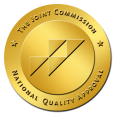

Centers for Disease Control and Prevention. (2025, June 9). Heroin. Overdose Prevention. U.S. Department of Health & Human Services. Retrieved August 22, 2025, from https://www.cdc.gov/overdose-prevention/about/heroin.html
Centers for Disease Control and Prevention. (2025). Understanding the opioid overdose epidemic. Overdose Prevention. U.S. Department of Health & Human Services. Retrieved August 22, 2025, from https://www.cdc.gov/overdose-prevention/about/understanding-the-opioid-overdose-epidemic.html
Centers for Disease Control and Prevention, National Center for Health Statistics. (2025, March 17). FastStats – Drug overdoses. Retrieved August 22, 2025, from https://www.cdc.gov/nchs/fastats/drug-overdoses.htm
Kentucky Office of Drug Control Policy & Kentucky Injury Prevention and Research Center. (2025). 2024 Kentucky drug overdose fatality report. Commonwealth of Kentucky. Retrieved August 22, 2025, from https://odcp.ky.gov/Reports/2024%20Drug%20Overdose%20Fatality%20Report.pdf
Centers for Disease Control and Prevention. (2025, August 7). SUDORS dashboard: Fatal drug overdose data. U.S. Department of Health & Human Services. Retrieved August 22, 2025, from https://www.cdc.gov/overdose-prevention/data-research/facts-stats/sudors-dashboard-fatal-overdose-data.html
Kentucky Justice & Public Safety Cabinet. (2023). Gov. Beshear: Overdose deaths decline for second-straight year. Commonwealth of Kentucky. Retrieved August 22, 2025, from https://justice.ky.gov/News/Pages/24overdosefatalityreport.aspx

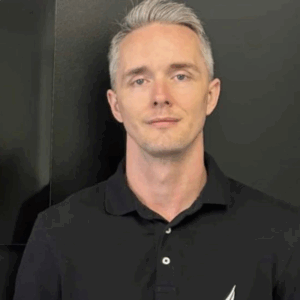

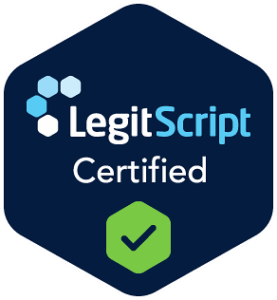
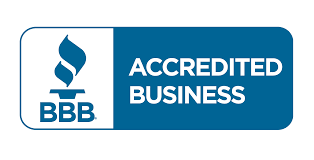


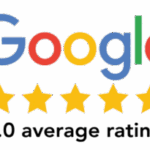

Centers for Disease Control and Prevention. (2025, June 9). Heroin. Overdose Prevention. U.S. Department of Health & Human Services. Retrieved August 22, 2025, from https://www.cdc.gov/overdose-prevention/about/heroin.html
Centers for Disease Control and Prevention. (2025). Understanding the opioid overdose epidemic. Overdose Prevention. U.S. Department of Health & Human Services. Retrieved August 22, 2025, from https://www.cdc.gov/overdose-prevention/about/understanding-the-opioid-overdose-epidemic.html
Centers for Disease Control and Prevention, National Center for Health Statistics. (2025, March 17). FastStats – Drug overdoses. Retrieved August 22, 2025, from https://www.cdc.gov/nchs/fastats/drug-overdoses.htm
Kentucky Office of Drug Control Policy & Kentucky Injury Prevention and Research Center. (2025). 2024 Kentucky drug overdose fatality report. Commonwealth of Kentucky. Retrieved August 22, 2025, from https://odcp.ky.gov/Reports/2024%20Drug%20Overdose%20Fatality%20Report.pdf
Centers for Disease Control and Prevention. (2025, August 7). SUDORS dashboard: Fatal drug overdose data. U.S. Department of Health & Human Services. Retrieved August 22, 2025, from https://www.cdc.gov/overdose-prevention/data-research/facts-stats/sudors-dashboard-fatal-overdose-data.html
Kentucky Justice & Public Safety Cabinet. (2023). Gov. Beshear: Overdose deaths decline for second-straight year. Commonwealth of Kentucky. Retrieved August 22, 2025, from https://justice.ky.gov/News/Pages/24overdosefatalityreport.aspx









Get Family Support Now
We understand addiction affects the whole family. Our comprehensive family program helps rebuild trust and restore relationships.
Weekly Family Therapy Sessions
Educational Workshops
Support Groups
Communication Skills Training


Hear directly from those who have walked the path to recovery. Our patients’ stories highlight the compassionate care, effective programs, and life-changing support they’ve experienced. Let their journeys inspire you as you take your first steps toward healing.
Louisville Addiction Center is helping people in Kentucky overcome addiction and mental health challenges.